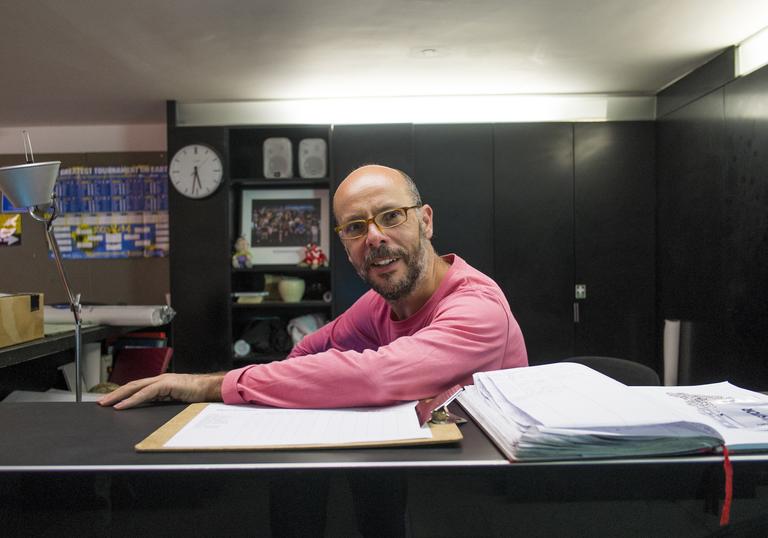How long have you been working at the Barbican?
When asked if I wanted to work on stage door, I said that I would do it for a couple of months until they found someone else... That was sometime in the late 90’s. Occasionally, I feel slightly embarrassed how long I’ve been here. But then friends slap me around the head and remind me how lucky I am to have a job in a creative environment that is flexible and financially supports me to remain an artist.
Talk us through your average working day.
I tend to work evenings, so I tend to take over from my colleague, ‘Big Tony’. During the shift, I make sure the companies can get in their dressing rooms and answer any of their questions, take phone calls, pass on messages. We’re the sort of communications hub for the theatre because the backstage is so labyrinthine. So without a stage door keeper and the use of a tannoy, it could take someone ages to try and find someone in the building. So yeah, we’re a sort of security guard, messenger and concierge all rolled into one.
What is the best part of your job?
It’s probably meeting some interesting people. A while back, I gave Jarvis Cocker, who was here with Michael Clark Dance Company, a CD of my songs. A while later, a couple of them ended up on his radio programme, which was a bit of an amazing shock. I also really like the people I work with. We’re incredibly like some sort of dysfunctional family here in the theatre bit. It feels like we all know each other pretty well. Oh, and another great thing is having a steady income, which any artist knows is a real asset, especially in London. I don’t really buy into the idea that in order to be creative, you have to be a starving artist living in his garret.
What is the most challenging part of your job?
I think, having chosen to stay with this job rather than find something else in order to fund my creative work, one of the personal challenges is to not to get down when someone who hasn’t been here for a long time arrives and says ‘oh, you’re still here’. But it’s also to be sort of freshly attentive and welcoming to the companies after so many companies have passed through the theatres here. Oh, and trying not to share the bits of gossip that you can hear here at the stage door. That can be quite a challenge.
Do you have a favourite spot in the Barbican Centre or Estate?
I like walking along the highwalk between the Centre and Barbican tube where all the flowerbeds are. I always think that I should use it because I like it so much more than the car tunnel. I guess that was what the architects were thinking when they built it. But they didn’t take into account like humans can be lazy and it’s just quicker and easier to walk through a car-fumed tunnel rather than climb a few stairs.
What was the first performance or exhibition you saw at the Barbican?
Macbeth when I was doing it for O Level. I came with my school, we sat in the circle or gallery and it all seemed quite exciting. I don’t think it was the play though. It was more just being away from the classroom. That was great.
What is your best Barbican memory or experience?
Performing in The Velvet Lounge, a cabaret night in The Pit. I was so incredibly nervous. I remember looking down and noticing my legs were shaking. But it seemed to go really well and I remember some of my colleagues were kind of surprised that they liked what I did.
Outside the Barbican, what is your favourite thing to do/favourite place in London?
Going to the gym or pool at Brockwell Lido. Oh, and eating breakfast at the Wolseley is a real treat for when I’m feeling down.
Do you have any advice for people interested in pursuing a career on the Stage Door?
It wasn’t my dream job to be a Stage Door Keeper, like wanting to be an airline pilot or a pop-star. But I mean it’s a great job if you’re also pursuing something else in your life. Hmmm, advice? Actually, yeah, it would be ‘if you don’t get along with people, then it’s probably not the job for you.
Describe the Barbican in five words.
Concrete Marmitey airportish wannabe utopia.

